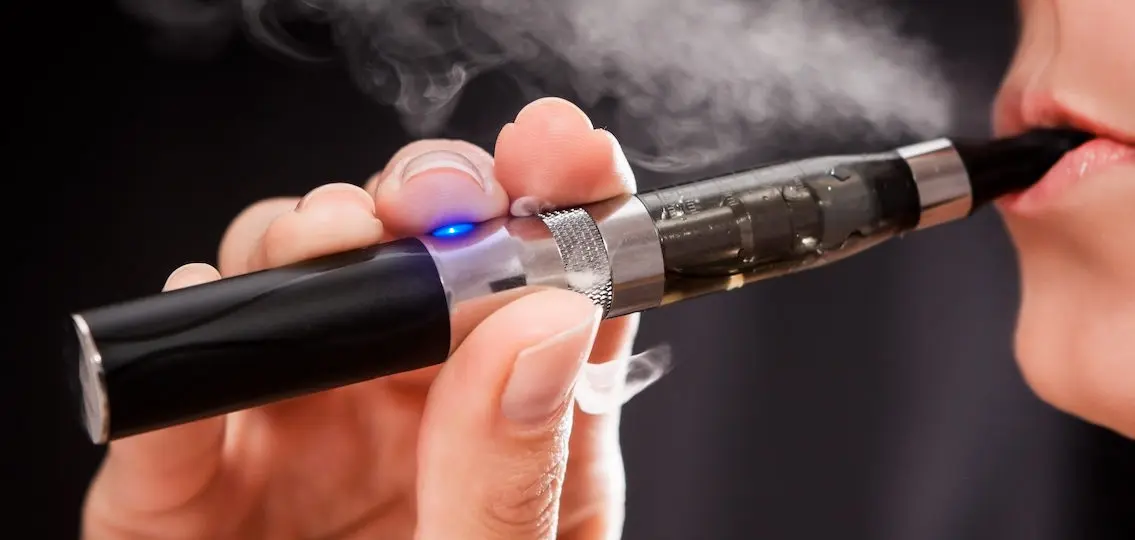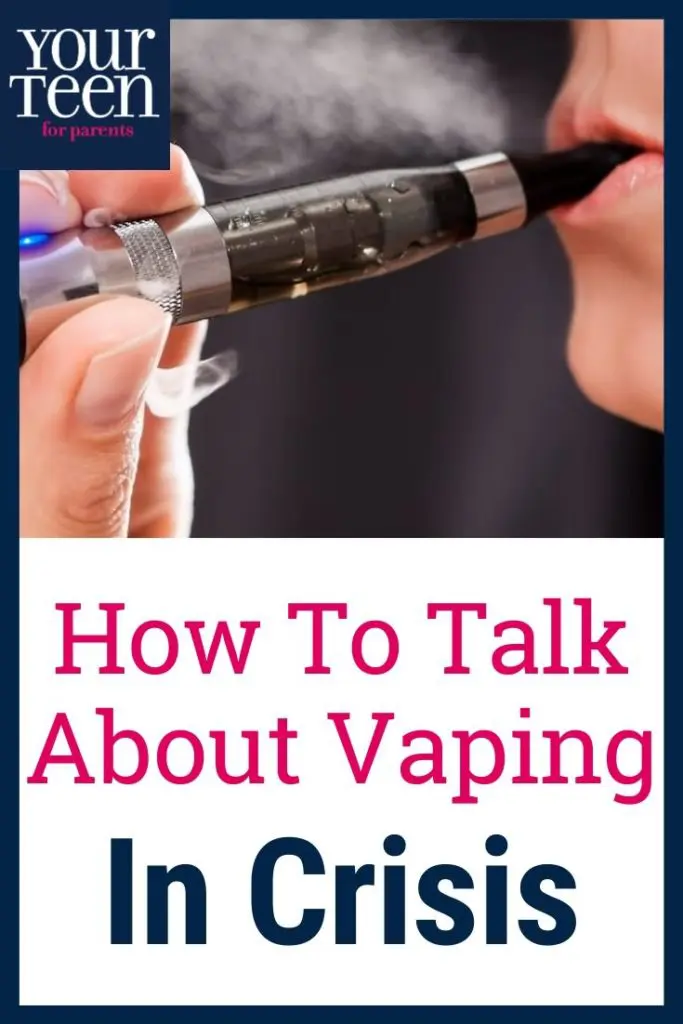Bonnie Halpern-Felsher is a professor in the division of Adolescent Medicine, Department of Pediatrics at Stanford University. She’s also the founder and executive director of Tobacco Prevention Toolkit and the Cannabis Awareness and Prevention Tool Kit. With The fact that the coronavirus attacks victims’ lungs raises concerns that teenagers who vape might be more vulnerable.
| [adrotate banner=”169″] |
Q: How does the pandemic impact our conversation with our teenagers about vaping?
Haplern-Felsher: Anything that we put into our lungs—vaping, marijuana, smoking, marijuana, vaping, e-cigarettes, nicotine, smoking, cigarettes—will increase the likelihood that we will have severe lung disease if we get Covid-19. It’s not clear if it effects the chances of getting Covid-19, but it definitely affects the chances that if we do get it, we’re going to have more severe lung disease. Teens think, “If I get it, it’s not a big deal because most teenagers don’t get very sick from it,” but that’s not true if you are vaping or smoking.
Q: When we talk to our kids, what words can we use that will impact them and make them believe that this is serious and that they should stop, even if they’re thinking about doing it or doing it moderately?
Haplern-Felsher: First of all, get the words right. If you say to a teen, “Don’t smoke,” generally, the response is going to be “Smoke what?” because they’re thinking cannabis or marijuana and we’re thinking e-cigarettes. The second is when we talk to teens, it’s important not to use scare tactics because teens shut off from that. It’s really more important to say, “Look, I worry about you. I worry about your lungs, I worry about this disease. I worry about other people. You may or may not have a negative effect. You may or may not get sick. But if you do, it’s a really serious issue.”
We adults tend to make it sound like X leads to Y immediately. And that’s not necessarily the case. We want to be honest about that. We’re worried about your health. We’re worried about hospitalization. But we’re also worried that you could get sick and give it to grandma, grandpa and they could become really sick. Those are the kinds of words and conversations that we have. Try to bring it home and give examples of why you’re worried. “You have asthma. I’m worried about your career as a runner. I’m worried about your career as a dancer. If you use vaping products or any tobacco or marijuana product right now, especially if you inhale it, you’re going to hurt the chances of that scholarship or that career.” That’s bringing it home to them. They don’t care what’s going to happen in 30 years. They care about now.
Q: What if we find they’re using (but not addicted)? What does that conversation look like?
Haplern-Felsher: You’re still going to talk to them about health risks. I’m not saying to avoid that conversation, but you’re not going to talk to them about how this is awful and you’re going to die. That kind of conversation is going to get the eye roll and have a teen walk away, especially now. And teens are hearing the conversation about Covid-19 all the time and they’re sick of it. All of us are tired of this. We’re scared. We’re ready to get back to our lives.
Because of the shelter in place, so many teens are struggling. They want to use. And maybe they don’t have access to the product. Maybe they’re going through withdrawal if they’re addicted. They’re worried their parents are going to find out.
Parents are more likely to notice something going on, too, and be more vigilant about smelling something sweet in their bedroom or noticing them hiding in a closet or hiding in the room or in the bathroom or signs that a young person may be using.
If you notice that your teenager is using these products, have the conversation. “Johnny, I noticed that you were using this product, which I think is a vaping product. I’m not sure what you’re putting in it, but I’m worried. And I’m worried because I’ve heard about the chemicals in there that are not good. I know about the high levels of nicotine, which worries me because, it changes your mood. It changes your study habits, changes your brain development.” We talk a little bit about that. And then I say, “You know what? Now, more than ever, I’m also worried.” And then start the conversation about Covid.
Q: Since kids have become addicted to vaping at such a high extent, it’s been really hard to figure out ways to help those kids. But if they’re living in your house and they are having a hard time coping with the stress, are there places parents can reach out to get assistance and to make a difference in their kid’s addiction?
Haplern-Felsher: Absolutely. Because teenagers are home, you might start seeing symptoms of withdrawal if a teenager is afraid to use or can’t access the product around you. Be aware. Are your teenagers complaining of headaches? What about complaining of shakiness? Are you finding that they can’t sit still? Are you seeing more extreme mood swings? Now, I know teenagers have mood swings anyway, but much more extreme. Iit may be because they’re moping around because of Covid and they’re bummed about being home. But it’s an opportunity to also pay attention to whether they’re going through withdrawal. And that is a very much a concern right now. Maybe they’re going to be honest with you and say, “You know what? I’ve got a problem. I’m addicted again.” Don’t get angry, but help. We’re in the business right now of helping. How can we get this teenager some help?
We don’t have any nicotine replacement therapies approved by the FDA for anybody under age 18. But you can certainly get it prescribed by a doctor so you can call up your doctor. Most doctors will prescribe some level of nicotine replacement therapy. You can do it through telecommuting or telemedicine. You can also use a number of different hotlines that are available right now. The Truth Initiative has one for juuling. There’s also 1-800-quitnow. There’s another one called My Life My Quit. There are a number of those. Some of them have a life coach. Also, schools, even though they’re closed, still have their counseling sessions open that can be done remotely. We don’t have evidence yet, but some combination of medication, if that’s available and possible, coupled with some sort of counseling that could be through the hotlines or these quit lines, might work.
Q: Where do parents go for support?
Haplern-Felsher: First of all, at Standford.edu, we have a tobacco prevention tool kit. We have some materials for parents in the resource section and a talk that I give to help parents understand more about e-cigarettes and their effects and how to talk to your teenagers. Your Teen magazine has a lot of resources and great information as well. The CDC and NIH have some great resources. We also have on our Web site something called Alternative to Suspension. It’s a healthy futures curriculum that parents can actually use with their teenagers to go through the steps to help a young person stop using any product, particularly e-cigarettes.






